
 Barr Geospatial Solutions (“BGS”) is excited to announce the acquisition of Forcorp, a respected Canadian forestry analytics company based out of Edmonton, Alberta. This marks a significant step in our expansion in the Canadian forestry analytics market and reinforces our commitment to delivering cutting-edge forest management and environmental solutions. With over three decades of proven expertise in natural resource management, Forcorp has been delivering practical, result-driven solutions through a blend of innovation, engagement, and experience. Specializing in natural resource management, land use administration, data management, and software development, their multidisciplinary team spans forestry, biology, environmental science, and computer science. Forcorp will become part of BGS owned Forsite strengthening its analytics capacity across Canada. Forsite is a recognized leader in forestry solutions, including forest land management, digital tree inventories, fire modeling and forestry services.
Barr Geospatial Solutions (“BGS”) is excited to announce the acquisition of Forcorp, a respected Canadian forestry analytics company based out of Edmonton, Alberta. This marks a significant step in our expansion in the Canadian forestry analytics market and reinforces our commitment to delivering cutting-edge forest management and environmental solutions. With over three decades of proven expertise in natural resource management, Forcorp has been delivering practical, result-driven solutions through a blend of innovation, engagement, and experience. Specializing in natural resource management, land use administration, data management, and software development, their multidisciplinary team spans forestry, biology, environmental science, and computer science. Forcorp will become part of BGS owned Forsite strengthening its analytics capacity across Canada. Forsite is a recognized leader in forestry solutions, including forest land management, digital tree inventories, fire modeling and forestry services.
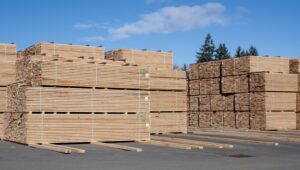 Politicians from BC and Ottawa met in Vancouver Monday for a forestry summit, where they agreed to create a working group on supporting the industry in the face of ever-increasing U.S. fees and tariffs. …Speaking after the forestry summit on Monday, he said the federal government’s commitment to a working group with the province felt “very heartening.” Kim Haakstad, the president of the B.C. Council of Forest Industries, said in a statement that the group is pleased the governments are working together to keep people working — even when markets are challenging. Haakstad said the working group should also include the industry to help focus on keeping mills open, which means prioritizing a new softwood lumber deal and accelerating the rollout of the $1.2 billion from federal government.
Politicians from BC and Ottawa met in Vancouver Monday for a forestry summit, where they agreed to create a working group on supporting the industry in the face of ever-increasing U.S. fees and tariffs. …Speaking after the forestry summit on Monday, he said the federal government’s commitment to a working group with the province felt “very heartening.” Kim Haakstad, the president of the B.C. Council of Forest Industries, said in a statement that the group is pleased the governments are working together to keep people working — even when markets are challenging. Haakstad said the working group should also include the industry to help focus on keeping mills open, which means prioritizing a new softwood lumber deal and accelerating the rollout of the $1.2 billion from federal government.


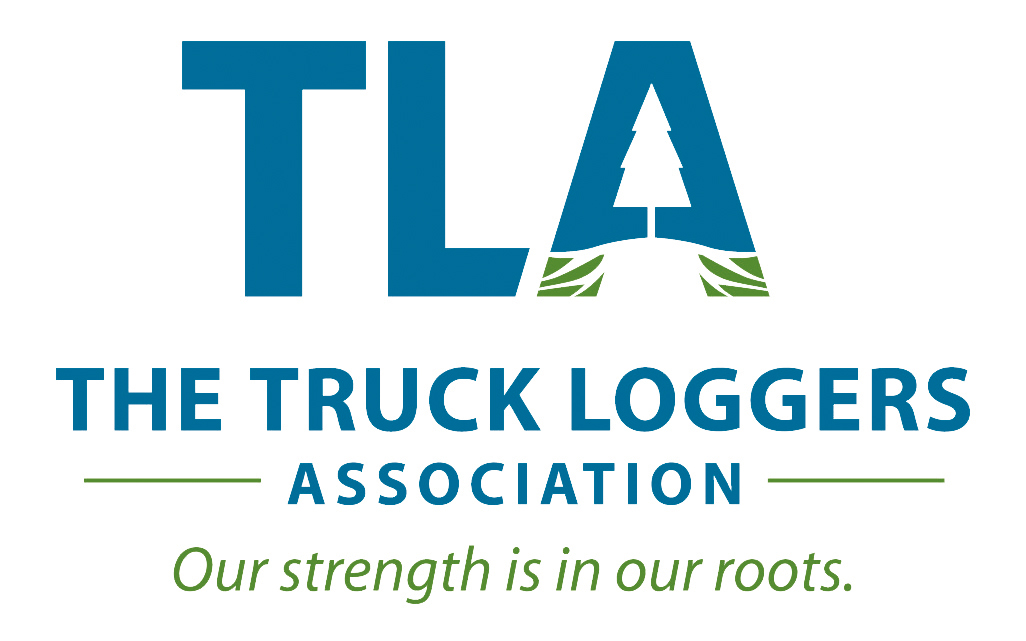 Following today’s BC Forestry Summit, the TLA was pleased to hear the encouraging remarks from Premier Eby and the Honourable Dominic LeBlanc, Federal Minister of Intergovernmental Affairs, Infrastructure and Communities. Their commitment to … addressing softwood lumber tariffs is an important step toward ensuring the long-term stability and competitiveness of Canada’s forest sector. As the backbone of most BC communities, the TLA appreciates today’s much needed recognition that forestry remains critical to both BC and Canada’s economies. The TLA emphasizes the importance of ensuring that a portion of the federal government’s $700 million in funding directly supports forestry’s timber harvesting contractors. …this support can strengthen a sustainable and more certain forest industry. BC was once the lowest cost lumber producer in North America and is now amongst the highest… There is an urgent need to improve certainty by diversifying markets, enhancing access to fibre, and reducing costs to ensure the industry’s long-term viability and global competitiveness.
Following today’s BC Forestry Summit, the TLA was pleased to hear the encouraging remarks from Premier Eby and the Honourable Dominic LeBlanc, Federal Minister of Intergovernmental Affairs, Infrastructure and Communities. Their commitment to … addressing softwood lumber tariffs is an important step toward ensuring the long-term stability and competitiveness of Canada’s forest sector. As the backbone of most BC communities, the TLA appreciates today’s much needed recognition that forestry remains critical to both BC and Canada’s economies. The TLA emphasizes the importance of ensuring that a portion of the federal government’s $700 million in funding directly supports forestry’s timber harvesting contractors. …this support can strengthen a sustainable and more certain forest industry. BC was once the lowest cost lumber producer in North America and is now amongst the highest… There is an urgent need to improve certainty by diversifying markets, enhancing access to fibre, and reducing costs to ensure the industry’s long-term viability and global competitiveness. VANCOUVER — British Columbia Premier David Eby says the province is walking back plans to run anti-tariff advertisements in the United States after a meeting with federal officials about the province’s beleaguered forestry sector. Eby said Monday that B.C. won’t be running the ads “by ourselves,” in favour of aligning with the federal government in its dealings with the U.S. government under President Donald Trump. “The unfair and unjustified tariffs imposed by the White House on this sector directly threatens thousands of jobs right across the country,” Eby said at a news conference after a forestry summit meeting with federal officials and others. …”Minister LeBlanc didn’t have to ask,” Eby answered Monday when a reporter asked LeBlanc if he requested that the B.C. government hold off on its anti-tariff advertising campaign. “I knew that it was a source of anxiety for many people, including potentially the federal government.”
VANCOUVER — British Columbia Premier David Eby says the province is walking back plans to run anti-tariff advertisements in the United States after a meeting with federal officials about the province’s beleaguered forestry sector. Eby said Monday that B.C. won’t be running the ads “by ourselves,” in favour of aligning with the federal government in its dealings with the U.S. government under President Donald Trump. “The unfair and unjustified tariffs imposed by the White House on this sector directly threatens thousands of jobs right across the country,” Eby said at a news conference after a forestry summit meeting with federal officials and others. …”Minister LeBlanc didn’t have to ask,” Eby answered Monday when a reporter asked LeBlanc if he requested that the B.C. government hold off on its anti-tariff advertising campaign. “I knew that it was a source of anxiety for many people, including potentially the federal government.”

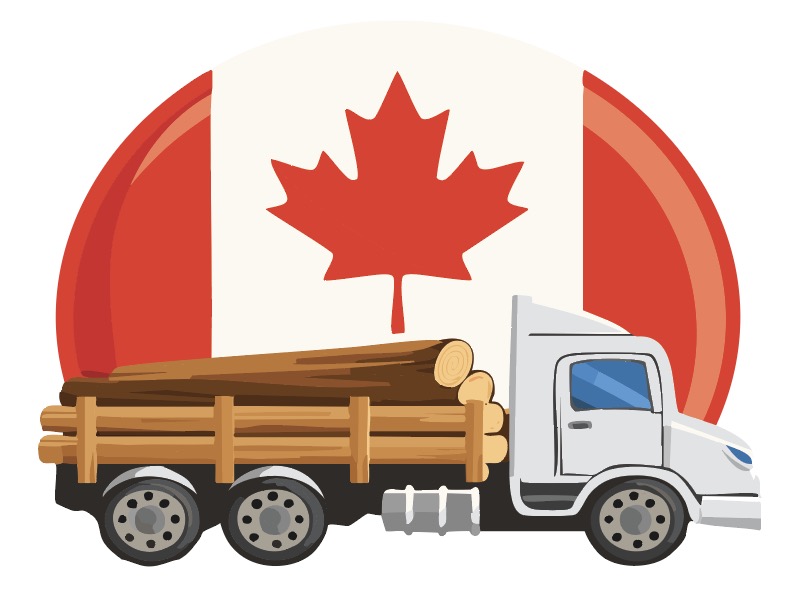 Was Premier David Eby ever really serious about running anti-American softwood lumber ads? Maybe, briefly, back when nobody cared about $100,000 worth of sponsored content promoting B.C. wood products. But after Ontario’s ads blew up Canada-U.S. trade talks, Eby seemed to realize the true value of his campaign — namely, in not running it at all. On Monday, Eby all but admitted his tough talk over the past 10 days about the urgent need to educate Americans on B.C.’s softwood sector was just leverage to score a meeting with federal cabinet ministers. …The premier had spent several weeks loudly proclaiming that these softwood ads were essential, and that they would go forward regardless of what the federal government thought. …In exchange for backing off his threat, Eby hyped up a “softwood summit” on Monday his government called the “turning point in our fight for forestry workers.”
Was Premier David Eby ever really serious about running anti-American softwood lumber ads? Maybe, briefly, back when nobody cared about $100,000 worth of sponsored content promoting B.C. wood products. But after Ontario’s ads blew up Canada-U.S. trade talks, Eby seemed to realize the true value of his campaign — namely, in not running it at all. On Monday, Eby all but admitted his tough talk over the past 10 days about the urgent need to educate Americans on B.C.’s softwood sector was just leverage to score a meeting with federal cabinet ministers. …The premier had spent several weeks loudly proclaiming that these softwood ads were essential, and that they would go forward regardless of what the federal government thought. …In exchange for backing off his threat, Eby hyped up a “softwood summit” on Monday his government called the “turning point in our fight for forestry workers.”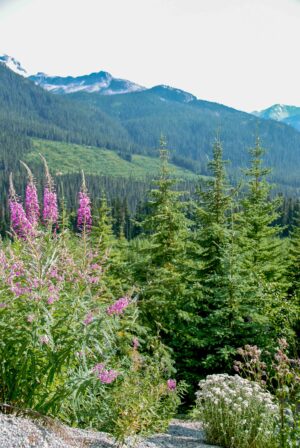
 Uh oh. BC Premier David Eby is about to launch his own anti-tariff advertising campaign aimed at US citizens. Eby said this week he expects ads targeting US lumber penalties to begin airing some time in November. It’s safe to say they will not mention Ronald Reagan. …Eby’s teaser for the BC ad campaign shows stacks of Canadian lumber, overlaid with a simplified graph of “winners” and “losers,” terms US President Trump likes to use. In these ads, the losers are American consumers and the Canadian lumber industry, and the winners are the Russians. “It’s important to speak directly to Americans looking to build homes or renovate,” Eby said. …Eby’s got a better case on lumber trade than Ford has on cars and trucks. US home builders have acknowledged that they can’t produce enough lumber for domestic needs, despite Trump’s claim that the US has plenty of trees.
Uh oh. BC Premier David Eby is about to launch his own anti-tariff advertising campaign aimed at US citizens. Eby said this week he expects ads targeting US lumber penalties to begin airing some time in November. It’s safe to say they will not mention Ronald Reagan. …Eby’s teaser for the BC ad campaign shows stacks of Canadian lumber, overlaid with a simplified graph of “winners” and “losers,” terms US President Trump likes to use. In these ads, the losers are American consumers and the Canadian lumber industry, and the winners are the Russians. “It’s important to speak directly to Americans looking to build homes or renovate,” Eby said. …Eby’s got a better case on lumber trade than Ford has on cars and trucks. US home builders have acknowledged that they can’t produce enough lumber for domestic needs, despite Trump’s claim that the US has plenty of trees.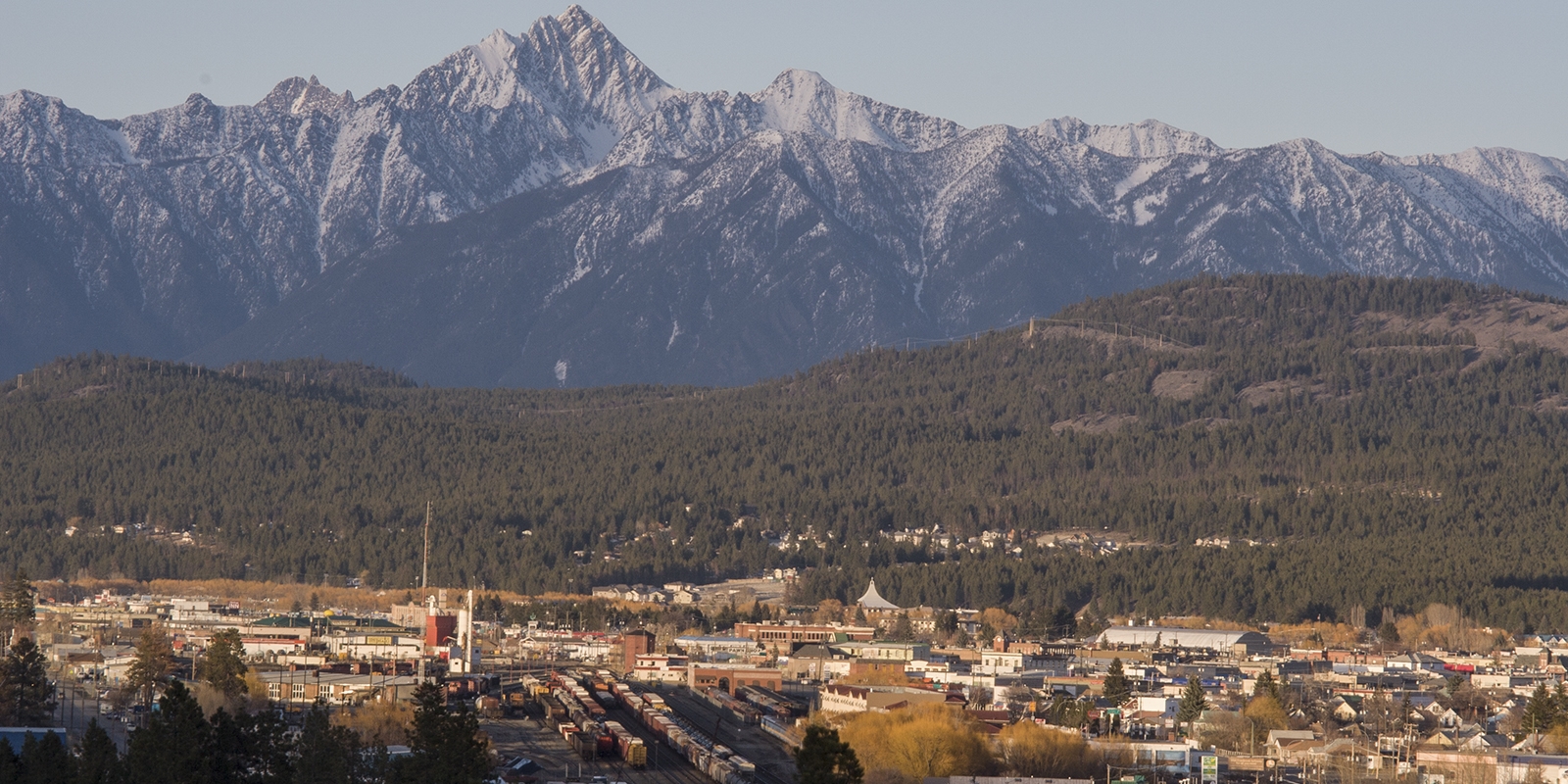

 The BCIT School of Construction and the Environment offers two Associate Certificate programs designed to support workforce development in the North American lumber and sawmill sector:
The BCIT School of Construction and the Environment offers two Associate Certificate programs designed to support workforce development in the North American lumber and sawmill sector: 
 SASKATCHEWAN — A massive pile of logs that caught fire Monday morning at the Meadow Lake Mechanical Pulp yard was continuing to burn Tuesday, and fire crews say the blaze won’t stop anytime soon. “It’s actually probably going to burn for at least a week, maybe longer, just due to the amount of material burning,” Meadow Lake fire department Chief Joe Grela said. …“We’re probably talking about 100,000 cubic meters of logs here, so quite an immense material,” Grela said. The company that owns the mill, Domtar, said the destruction of the wood is a huge loss. …”It’s always unfortunate when something like this happens, but it’s particularly unfortunate at a difficult time for the sector across the country.” The mill’s wood room was shut down as firefighters kept an eye on the smouldering logs. The fire department said the rest of the mill was running as usual.
SASKATCHEWAN — A massive pile of logs that caught fire Monday morning at the Meadow Lake Mechanical Pulp yard was continuing to burn Tuesday, and fire crews say the blaze won’t stop anytime soon. “It’s actually probably going to burn for at least a week, maybe longer, just due to the amount of material burning,” Meadow Lake fire department Chief Joe Grela said. …“We’re probably talking about 100,000 cubic meters of logs here, so quite an immense material,” Grela said. The company that owns the mill, Domtar, said the destruction of the wood is a huge loss. …”It’s always unfortunate when something like this happens, but it’s particularly unfortunate at a difficult time for the sector across the country.” The mill’s wood room was shut down as firefighters kept an eye on the smouldering logs. The fire department said the rest of the mill was running as usual.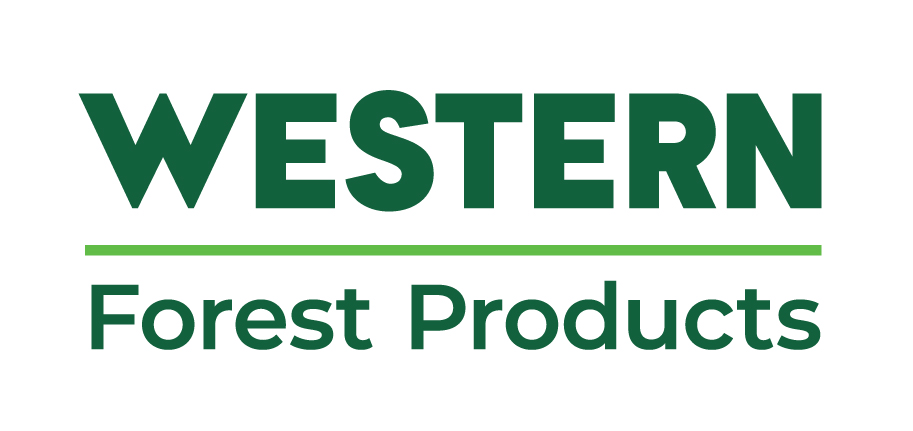 Vancouver, BC — Western Forest Products Inc. reported Adjusted EBITDA of negative $65.9 million in the third quarter of 2025, which included a non-cash export duty expense of $59.5 million related to the determination of final duty rates from the sixth Administrative Review. In comparison, the Company reported Adjusted EBITDA of negative $10.7 million in the third quarter of 2024, which included a $1.0 million export duty recovery related to the determination of final duty rates from the fifth AR, and Adjusted EBITDA of $0.5 million in the second quarter of 2025. Net loss was $61.3 million in the third quarter of 2025, as compared to a net loss of $19.6 million in the third quarter of 2024, and net loss of $17.4 million in the second quarter of 2025.
Vancouver, BC — Western Forest Products Inc. reported Adjusted EBITDA of negative $65.9 million in the third quarter of 2025, which included a non-cash export duty expense of $59.5 million related to the determination of final duty rates from the sixth Administrative Review. In comparison, the Company reported Adjusted EBITDA of negative $10.7 million in the third quarter of 2024, which included a $1.0 million export duty recovery related to the determination of final duty rates from the fifth AR, and Adjusted EBITDA of $0.5 million in the second quarter of 2025. Net loss was $61.3 million in the third quarter of 2025, as compared to a net loss of $19.6 million in the third quarter of 2024, and net loss of $17.4 million in the second quarter of 2025.
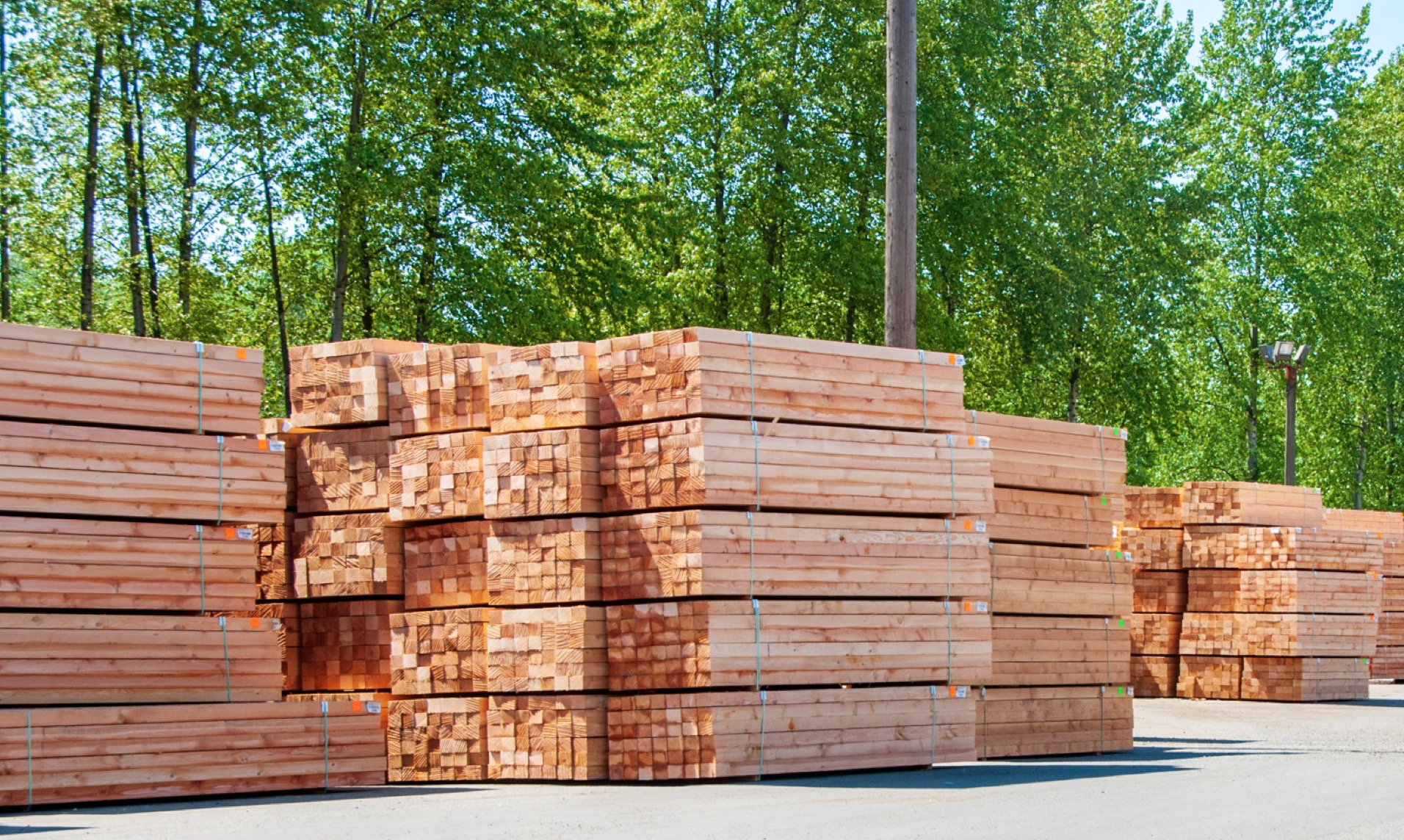 A technique used for the long-term preservation of human and animal remains is now being tested on Western red cedar. Plastination, originally designed to embalm the dead, is now being used to improve the functionality and durability of advanced composite materials. A team from UBC Okanagan’s School of Engineering has been experimenting with the technique and published a study that examined the
A technique used for the long-term preservation of human and animal remains is now being tested on Western red cedar. Plastination, originally designed to embalm the dead, is now being used to improve the functionality and durability of advanced composite materials. A team from UBC Okanagan’s School of Engineering has been experimenting with the technique and published a study that examined the 

 NANAIMO, BC: Following Vancouver Island’s devastating wildfire season, Mosaic is focusing on ways it can help reduce the chances of fires starting or limit their damage. Mosaic responded to 34 wildfires in 2025—a 19% increase over the previous year’s 26 fires. This year, all five of the most significant blazes were human-caused. The first concerning fire ignited near Campbell River in early May, making 2025 one of the earliest wildfire starts for the company. The Mount Underwood wildfire near Port Alberni burned almost 2,400 hectares of Mosaic lands—roughly the size of the city of Duncan—destroying new forests and conserved old growth while causing community evacuations and road closures. Throughout the season, Mosaic’s fire crews worked with BC Wildfire Service, contractors, First Nations and emergency responders to protect communities and forests.
NANAIMO, BC: Following Vancouver Island’s devastating wildfire season, Mosaic is focusing on ways it can help reduce the chances of fires starting or limit their damage. Mosaic responded to 34 wildfires in 2025—a 19% increase over the previous year’s 26 fires. This year, all five of the most significant blazes were human-caused. The first concerning fire ignited near Campbell River in early May, making 2025 one of the earliest wildfire starts for the company. The Mount Underwood wildfire near Port Alberni burned almost 2,400 hectares of Mosaic lands—roughly the size of the city of Duncan—destroying new forests and conserved old growth while causing community evacuations and road closures. Throughout the season, Mosaic’s fire crews worked with BC Wildfire Service, contractors, First Nations and emergency responders to protect communities and forests.  Local governments are frustrated after receiving a long-awaited answer to when legislative changes are coming to the law governing how some forest lands are managed in B.C. The answer: with the trade war targeting B.C. lumber, the priority is protecting forestry jobs. …The 2003 Private Managed Forest Land (PMFL) Act puts no limit on the volume of timber that can be harvested, contrary to logging on Crown land. It’s administered by the Private Managed Forest Council, two of the five members of which have active vested interest in PMFLs. …The ministry maintains modernization to the act is being considered. In July… CBC reported the ministry is “working to modernize the act following the 2019 review.” When asked what changed between July and August, the ministry repeated it “continues to work with the Private Forest Landowners Association and the Managed Forest Council to modernize the Private Managed Forest Land Program.”
Local governments are frustrated after receiving a long-awaited answer to when legislative changes are coming to the law governing how some forest lands are managed in B.C. The answer: with the trade war targeting B.C. lumber, the priority is protecting forestry jobs. …The 2003 Private Managed Forest Land (PMFL) Act puts no limit on the volume of timber that can be harvested, contrary to logging on Crown land. It’s administered by the Private Managed Forest Council, two of the five members of which have active vested interest in PMFLs. …The ministry maintains modernization to the act is being considered. In July… CBC reported the ministry is “working to modernize the act following the 2019 review.” When asked what changed between July and August, the ministry repeated it “continues to work with the Private Forest Landowners Association and the Managed Forest Council to modernize the Private Managed Forest Land Program.”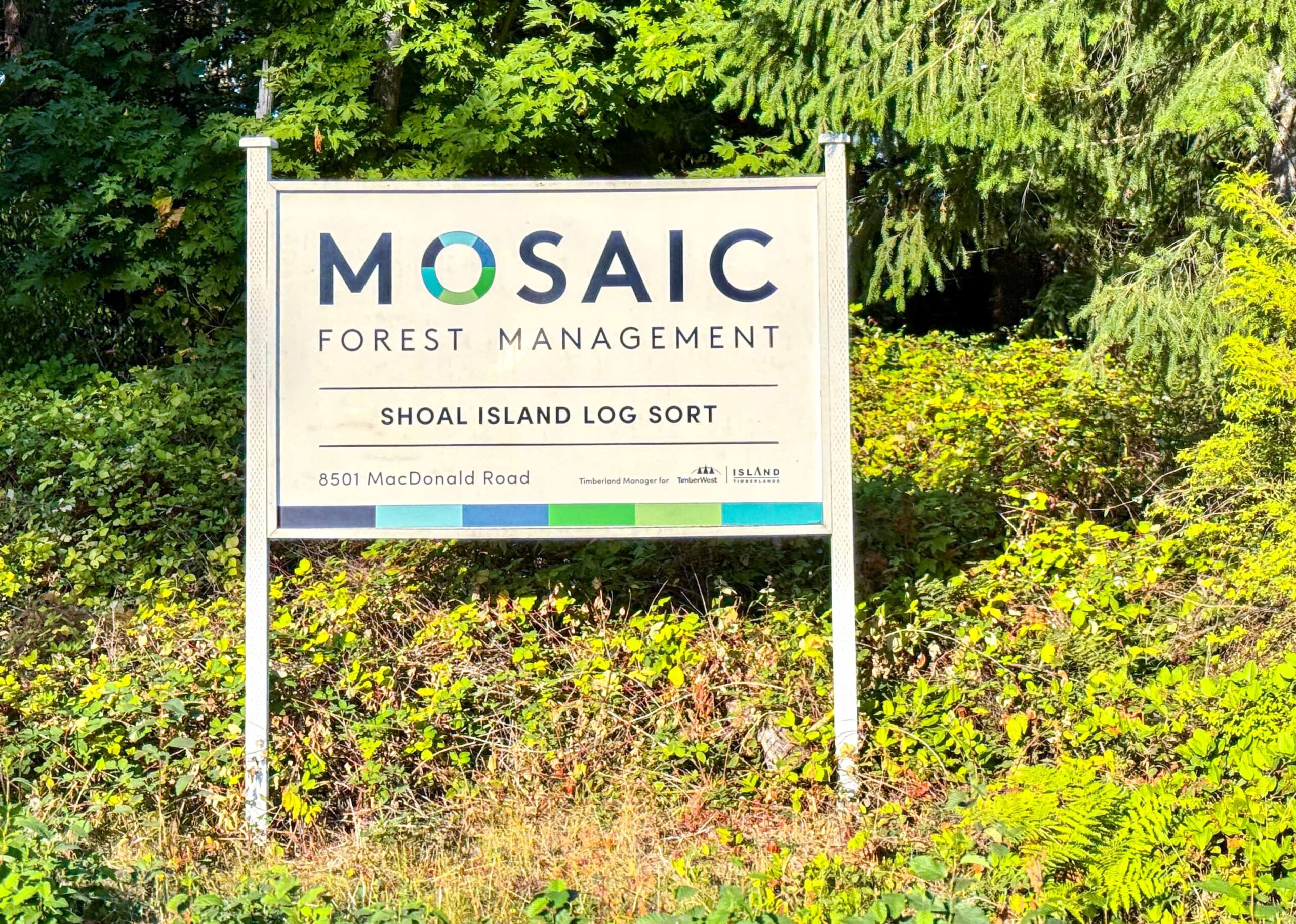 Local governments on Vancouver Island are frustrated after finally receiving a long-awaited answer to when legislative changes are coming to the law governing how some forest lands are managed in BC. The answer … after years of fighting, change is not coming. The 2003 Private Managed Forest Land (PMFL) Act puts no limit on the volume of timber that can be harvested, contrary to logging on Crown land. …“What they’re looking for is the same standards that apply on Crown land to apply on private property,” BC’s Minister of Forests, Ravi Parmar said. “…we have a number of private licensees that do really good work in BC, and I would highlight Mosaic being the largest.” Parmar added he has recently spoken to Mosaic … and feels the company is taking steps to address local government concerns that don’t require legislative changes.
Local governments on Vancouver Island are frustrated after finally receiving a long-awaited answer to when legislative changes are coming to the law governing how some forest lands are managed in BC. The answer … after years of fighting, change is not coming. The 2003 Private Managed Forest Land (PMFL) Act puts no limit on the volume of timber that can be harvested, contrary to logging on Crown land. …“What they’re looking for is the same standards that apply on Crown land to apply on private property,” BC’s Minister of Forests, Ravi Parmar said. “…we have a number of private licensees that do really good work in BC, and I would highlight Mosaic being the largest.” Parmar added he has recently spoken to Mosaic … and feels the company is taking steps to address local government concerns that don’t require legislative changes. 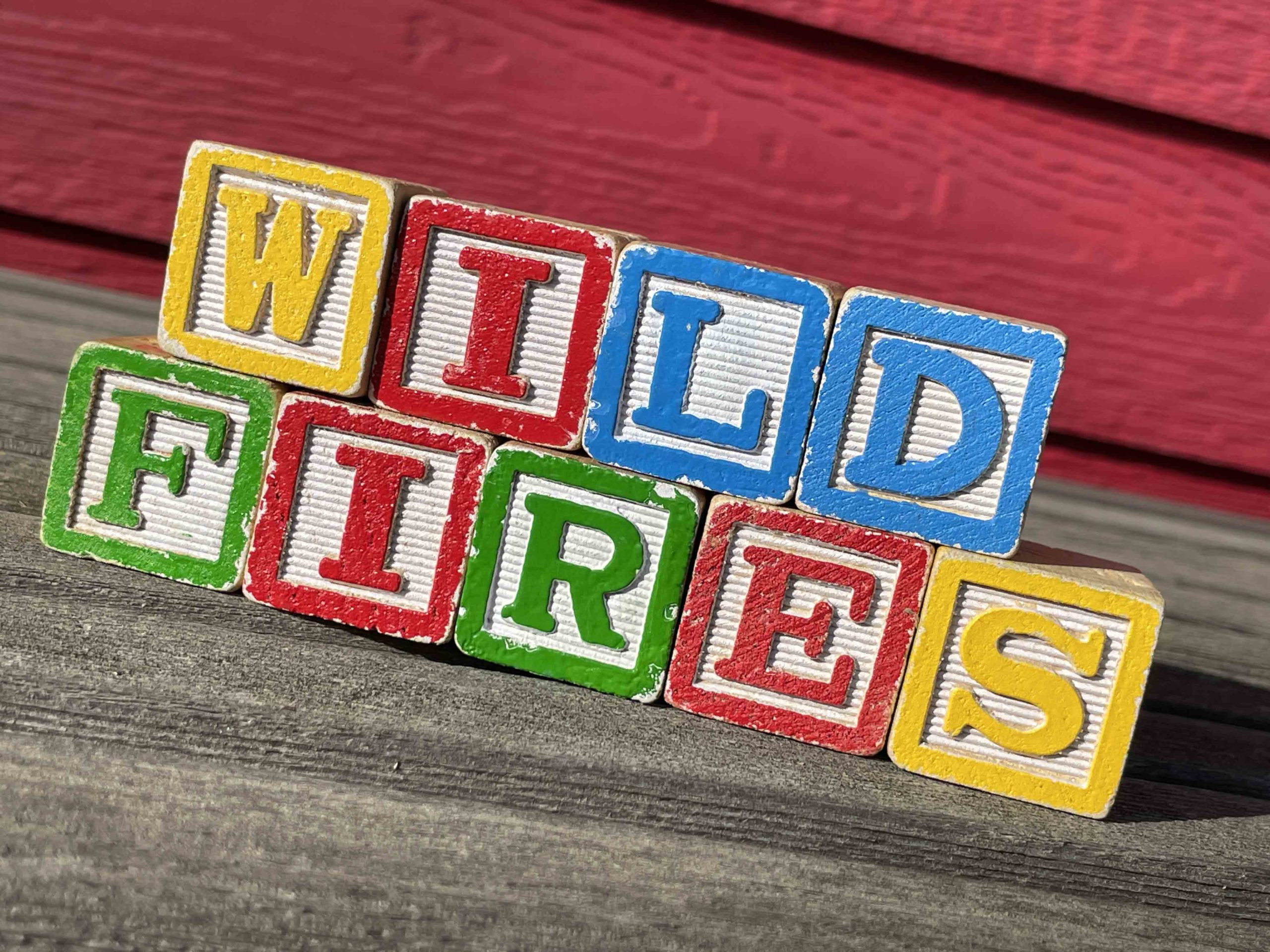 Campbell River council has given the green light to the fire department to apply for a $419,000 grant through the Union of British Columbia Municipalities. This funding will help mitigate wildfire risks within the city over the next five years. Fire Chief Kelly Bellefleur and Assistant Fire Chief Stephanie Bremer told council the grant will be used to develop a new Community Wildfire Resiliency Plan (CWRP) with a more comprehensive, science-based framework. It will assess current wildfire risks in the city, identify priority treatment zones, and establish a five-year framework for wildfire mitigation and community preparedness. The grant will also help the city upgrade the fire department’s capacity to fight wildfires by purchasing a Type 2 Structure Protection Unit, a mobile trailer equipped with pumps, hoses and sprinklers designed to protect multiple structures during a wildfire, among other priorities.
Campbell River council has given the green light to the fire department to apply for a $419,000 grant through the Union of British Columbia Municipalities. This funding will help mitigate wildfire risks within the city over the next five years. Fire Chief Kelly Bellefleur and Assistant Fire Chief Stephanie Bremer told council the grant will be used to develop a new Community Wildfire Resiliency Plan (CWRP) with a more comprehensive, science-based framework. It will assess current wildfire risks in the city, identify priority treatment zones, and establish a five-year framework for wildfire mitigation and community preparedness. The grant will also help the city upgrade the fire department’s capacity to fight wildfires by purchasing a Type 2 Structure Protection Unit, a mobile trailer equipped with pumps, hoses and sprinklers designed to protect multiple structures during a wildfire, among other priorities.
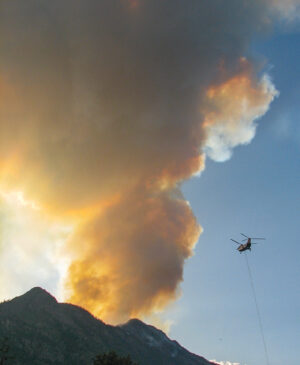 Alberta’s wildfire season unofficially came to an end Oct. 31, though there are still 30 burning. Since the season began on March 1, there have been 1,245 wildfires across the province. Nearly 682,000 hectares were scorched—slightly less than 2024 (705,621) and much less than 2023 (2,212,399). The Calgary Forest Area had 63 wildfires that burned around 35 hectares—the lowest number compared to the other zones in the province. The Slave Lake Forest Area was the most damaged, with more than 379,000 hectares burned from 214 wildfires. The moderate fire season around Calgary was thanks to normal temperatures from June to August, with a warmer May and September. The rain also kept fires at bay with the third-wettest July on record in Calgary. According to Environment and Climate Change Canada, there were 110 hours of smoke this year. “This is not a lot compared to most of the recent years,” said Natalie Hasell, ECCC warning preparedness meteorologist.
Alberta’s wildfire season unofficially came to an end Oct. 31, though there are still 30 burning. Since the season began on March 1, there have been 1,245 wildfires across the province. Nearly 682,000 hectares were scorched—slightly less than 2024 (705,621) and much less than 2023 (2,212,399). The Calgary Forest Area had 63 wildfires that burned around 35 hectares—the lowest number compared to the other zones in the province. The Slave Lake Forest Area was the most damaged, with more than 379,000 hectares burned from 214 wildfires. The moderate fire season around Calgary was thanks to normal temperatures from June to August, with a warmer May and September. The rain also kept fires at bay with the third-wettest July on record in Calgary. According to Environment and Climate Change Canada, there were 110 hours of smoke this year. “This is not a lot compared to most of the recent years,” said Natalie Hasell, ECCC warning preparedness meteorologist.

 On Friday, October 17, the Ministry of Forests, through the Value-Added Accelerators, in partnership with the BC First Nations Forestry Council, the Council of Forest Industries, and the BC Value-Added Wood Coalition, hosted the Coastal Currents Regional Fibre Flow Forum in Richmond. Coastal Currents was designed to bring together stakeholders from across the coastal region to share insights, discuss fibre flow challenges and opportunities, and foster connections that support business development. Modeled after successful regional forums such as Roots in the Koots (Nelson), the Robson North Thompson Forestry Coalition, and the Northwest Fibre Symposium (Terrace), this event focused on collaboration within a specific geographic area to strengthen the value-added wood sector. The response was overwhelming, the session sold out, welcoming over 70 participants with strong representation from both the value-added and primary sectors.
On Friday, October 17, the Ministry of Forests, through the Value-Added Accelerators, in partnership with the BC First Nations Forestry Council, the Council of Forest Industries, and the BC Value-Added Wood Coalition, hosted the Coastal Currents Regional Fibre Flow Forum in Richmond. Coastal Currents was designed to bring together stakeholders from across the coastal region to share insights, discuss fibre flow challenges and opportunities, and foster connections that support business development. Modeled after successful regional forums such as Roots in the Koots (Nelson), the Robson North Thompson Forestry Coalition, and the Northwest Fibre Symposium (Terrace), this event focused on collaboration within a specific geographic area to strengthen the value-added wood sector. The response was overwhelming, the session sold out, welcoming over 70 participants with strong representation from both the value-added and primary sectors. BANFF – Most of the homes destroyed by the destructive Jasper wildfire were in neighbourhoods with many combustible roofs, highly flammable conifer trees and woody vegetation close to buildings after embers showered down on the national park townsite. That’s according to one of two independent Parks Canada-commissioned reports released last week, which examined the devastating wildfire in Jasper in July 2024 that destroyed 358 buildings – approximately one-third of the national park townsite. …“Once structures ignited, strong winds drove fire growth through densely-built up neighbourhoods, with structure to structure ignition dominating the spread,” according to the 71-page report by FP Innovation Wildfire Operations. “In the areas surrounding the townsite, continuous fuel pathways were often present between the wildland and structures. Consequently, a high proportion of ignitions were likely caused by direct flame contact and radiant heat emanating from burning wildland fuels. …The findings in FP Innovation’s report, said Martens, reiterate that “FireSmart works.”
BANFF – Most of the homes destroyed by the destructive Jasper wildfire were in neighbourhoods with many combustible roofs, highly flammable conifer trees and woody vegetation close to buildings after embers showered down on the national park townsite. That’s according to one of two independent Parks Canada-commissioned reports released last week, which examined the devastating wildfire in Jasper in July 2024 that destroyed 358 buildings – approximately one-third of the national park townsite. …“Once structures ignited, strong winds drove fire growth through densely-built up neighbourhoods, with structure to structure ignition dominating the spread,” according to the 71-page report by FP Innovation Wildfire Operations. “In the areas surrounding the townsite, continuous fuel pathways were often present between the wildland and structures. Consequently, a high proportion of ignitions were likely caused by direct flame contact and radiant heat emanating from burning wildland fuels. …The findings in FP Innovation’s report, said Martens, reiterate that “FireSmart works.”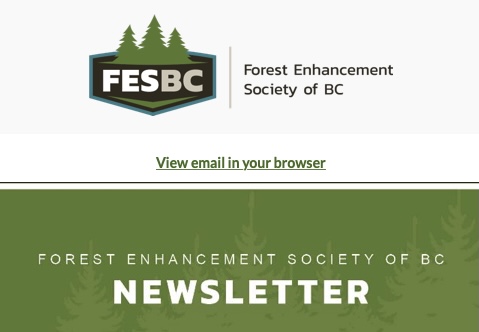 Since its inception almost 10 years ago, the Forest Enhancement Society of BC (FESBC) has been guided by a simple but powerful principle: collaboration drives impact. …Partnering with First Nations organizations has also deepened our understanding of how traditional knowledge can guide projects with a generational focus. This approach has helped foster greater Indigenous participation and leadership within forestry, contributing to a more inclusive and sustainable future. …Together, we are investing in projects that help create healthier, more productive and resilient forests for the future, and we are also strengthening the relationships that help make it all possible.
Since its inception almost 10 years ago, the Forest Enhancement Society of BC (FESBC) has been guided by a simple but powerful principle: collaboration drives impact. …Partnering with First Nations organizations has also deepened our understanding of how traditional knowledge can guide projects with a generational focus. This approach has helped foster greater Indigenous participation and leadership within forestry, contributing to a more inclusive and sustainable future. …Together, we are investing in projects that help create healthier, more productive and resilient forests for the future, and we are also strengthening the relationships that help make it all possible. 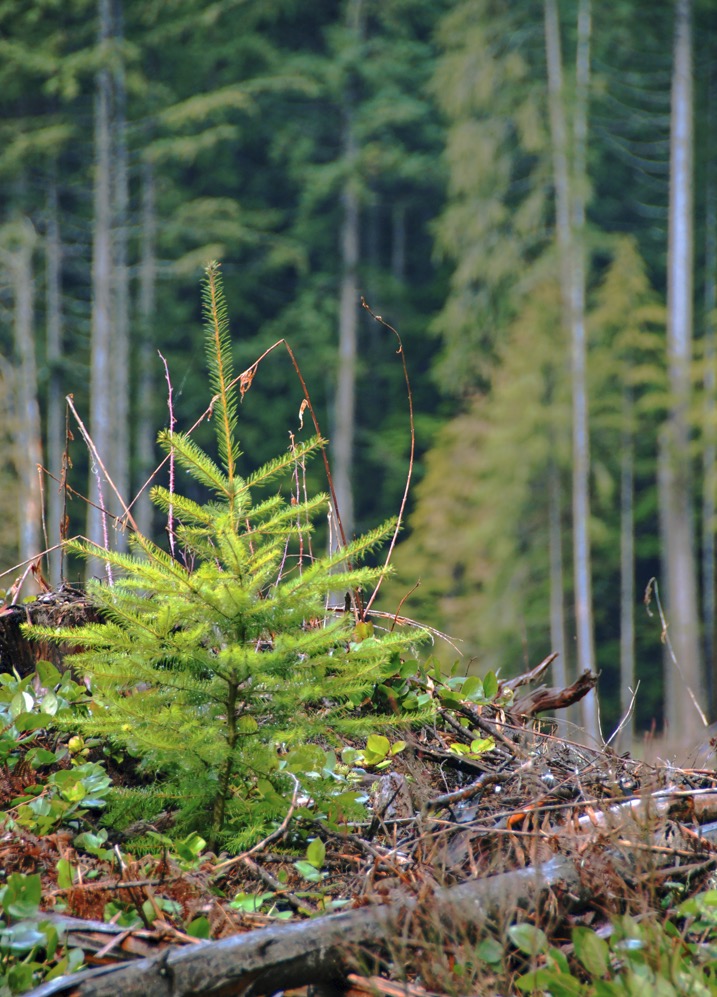 As wildfires continue to devastate communities across North America, it’s time we confront a hard truth: neglecting the forests that surround our towns is no longer an option. …Silviculture — the science of managing forest growth, composition, and health — is not just a tool for local timber production. It’s a vital strategy for climate resilience and community safety. Through practices like selective harvesting, thinning, and replanting, silviculture reduces fuel loads, promotes biodiversity, and maintains the ecological balance necessary to prevent catastrophic fires. Critics often question the ethics of cutting trees in the age of climate change. But when done responsibly, harvesting followed by replanting can actually enhance carbon sequestration. …Moreover, strong forest management isn’t just about trees — it’s about people. …Let’s stop treating forest management as a luxury or a controversial topic. It’s a necessity. Investing in silviculture is investing in the safety, sustainability, and future of our communities.
As wildfires continue to devastate communities across North America, it’s time we confront a hard truth: neglecting the forests that surround our towns is no longer an option. …Silviculture — the science of managing forest growth, composition, and health — is not just a tool for local timber production. It’s a vital strategy for climate resilience and community safety. Through practices like selective harvesting, thinning, and replanting, silviculture reduces fuel loads, promotes biodiversity, and maintains the ecological balance necessary to prevent catastrophic fires. Critics often question the ethics of cutting trees in the age of climate change. But when done responsibly, harvesting followed by replanting can actually enhance carbon sequestration. …Moreover, strong forest management isn’t just about trees — it’s about people. …Let’s stop treating forest management as a luxury or a controversial topic. It’s a necessity. Investing in silviculture is investing in the safety, sustainability, and future of our communities.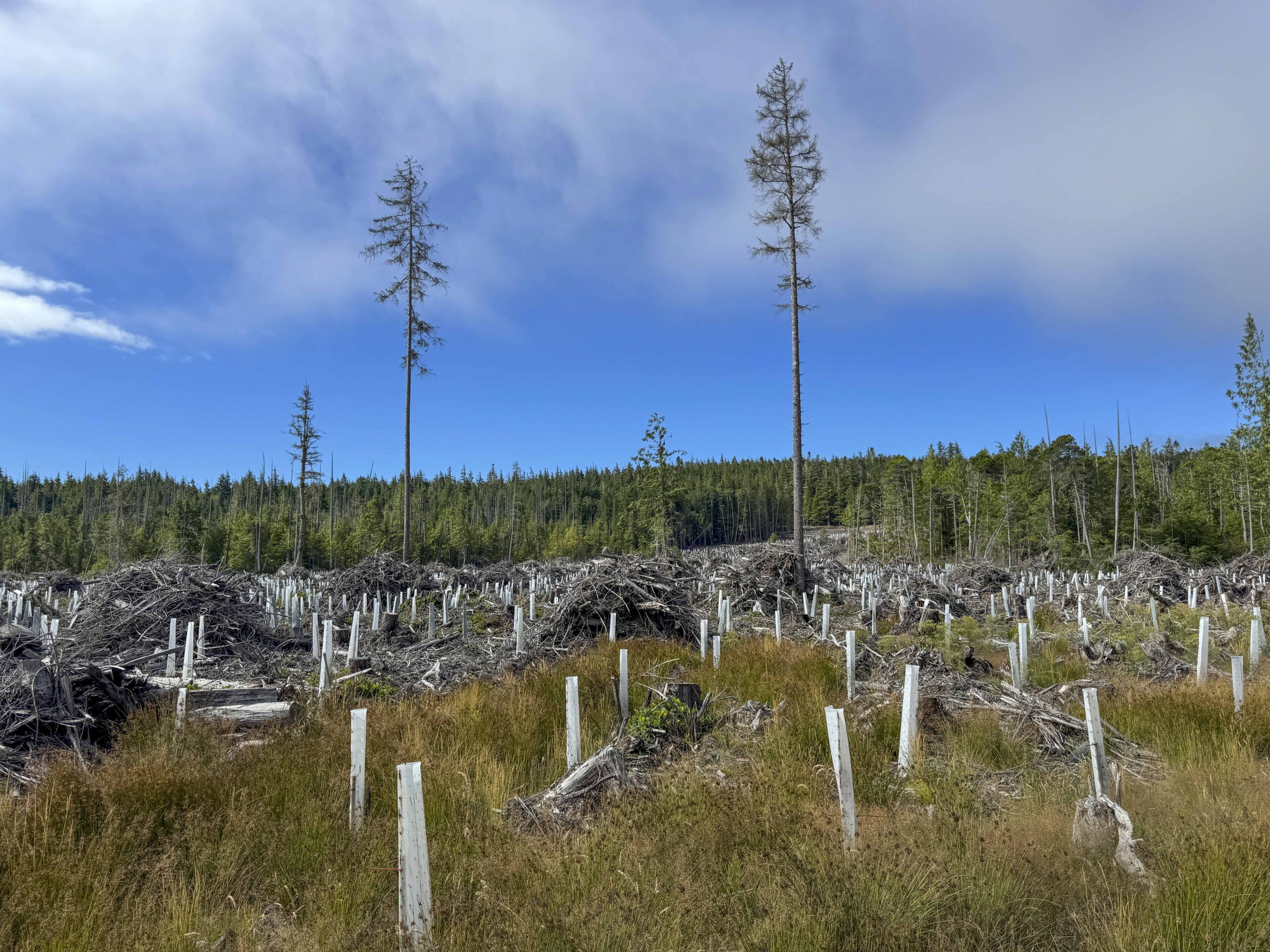 In response to the article, “
In response to the article, “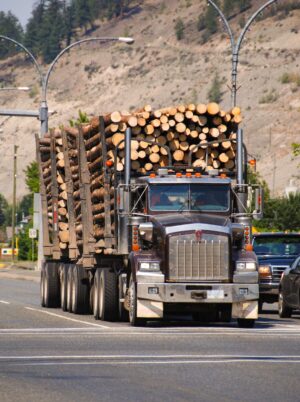
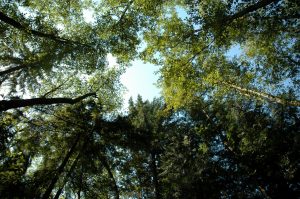 QUESNEL, BC — Given what’s going on around the world, it’s easy to understand why more areas in BC are taking a closer look at the Community Forest form of log harvesting tenure. It returns the management and responsibility for small, designated areas of forest land back into the hands of appointed people who live, work and care about them. Some control of what happens to and on the forest land in their own back yard has a growing appeal to its residents. …A community forest attempts to better accommodate other land users. …Co-operating with others as one cohesive unit becomes the catalyst for achieving dynamic, site specific land use solutions. It’s challenging but exciting work. It requires administering a cocktail of flexibility and responsiveness. Nick Pickles understands all that. It’s part of the appeal to being manager of the Three Rivers Community Forest based in the Cariboo region.
QUESNEL, BC — Given what’s going on around the world, it’s easy to understand why more areas in BC are taking a closer look at the Community Forest form of log harvesting tenure. It returns the management and responsibility for small, designated areas of forest land back into the hands of appointed people who live, work and care about them. Some control of what happens to and on the forest land in their own back yard has a growing appeal to its residents. …A community forest attempts to better accommodate other land users. …Co-operating with others as one cohesive unit becomes the catalyst for achieving dynamic, site specific land use solutions. It’s challenging but exciting work. It requires administering a cocktail of flexibility and responsiveness. Nick Pickles understands all that. It’s part of the appeal to being manager of the Three Rivers Community Forest based in the Cariboo region.